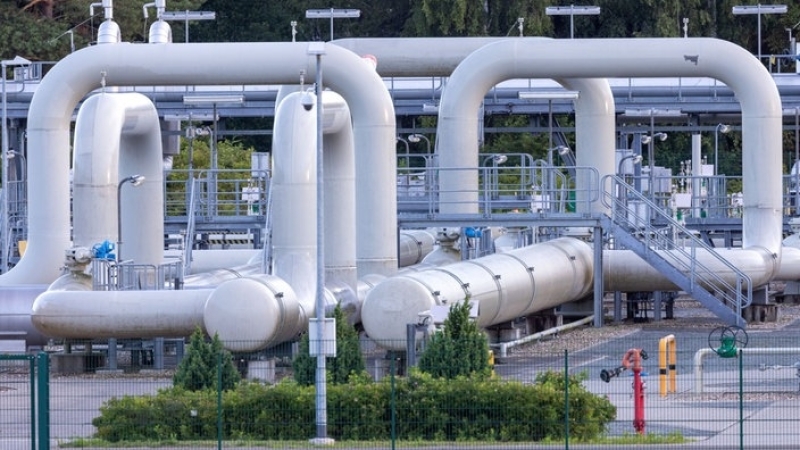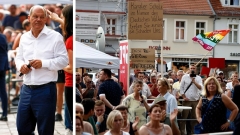Russia makes the future operation of Nord Stream 1 dependent on gas demand and sanctions
Only a fifth of the possible gas supply volume has been flowing through Nord Stream 1 for weeks. At the end of August, the Baltic Sea pipeline will be idle for three days for maintenance work. Russia is calling on the West to solve the problems it has created itself as quickly as possible.
In an exclusive interview with the TASS news agency, Russia's Deputy Foreign Minister Alexander Pankin spoke about prospects for Russian gas supplies to Europe via the Baltic Sea pipeline Nord Stream 1. He made the future operation of the gas pipeline dependent on several factors. The diplomat stressed that Russia is currently supplying Europe with only the amount of gas that is technically possible.
"As the Russian side has stated several times, the ongoing restrictions on supplies through the gas pipeline are conditioned solely by the anti-Russian sanctions in force by Canada, the EU and the UK."
Pankin accused the West of getting bogged down in its restrictions on Russia. This prevents a successful solution to the situation regarding the transport and repair of turbines that enable gas supplies to Europe via Nord Stream 1.
"As far as the future operation of Nord Stream 1 is concerned, a lot depends on our partners."
Among the key factors, the diplomat cited gas demand and the impact of punitive measures against Russia on the gas pipeline's operation. The current reduction in delivery volumes was not initiated by Russia, but by the EU. Pankin cited an EU plan to phase out Russian energy sources by 2030.
The Russian Deputy Foreign Minister drew attention to the fact that in 2021 Moscow has fulfilled all its obligations under the concluded gas supply contracts. Even in this difficult time, Russia is trying to fulfill its obligations. In this context, Pankin called on the West to solve the problems created by the Western governments themselves as soon as possible. In this case, the situation on the gas market will quickly normalize.
Pankin further stated that the already built Nord Stream 2 gas pipeline could be a way out under these circumstances. The project was ready for operation in December 2021. However, under pressure from the USA, Poland and the Baltic EU countries, Germany decided to put it on hold. The federal government only harmed its own citizens and companies. Even if the German authorities hypothetically agreed to the operation of Nord Stream 2, only one strand of it could be used at the moment, since the infrastructure located on the territory of Russia is already being used in part to supply gas to the north-western regions of the country.
On Friday, Russia announced that it would interrupt gas supplies via the Nord Stream 1 Baltic Sea pipeline for three days at the end of August. From August 31 to September 2, no gas will flow to Germany due to maintenance work. During this time, the only functioning turbine at the Portovaya compressor station had to be checked and overhauled. According to the state-owned company Gazprom, 33 million cubic meters of natural gas should then be delivered every day - 20 percent of the daily maximum output to which Russia had reduced deliveries a few weeks ago.

Comments to this:








